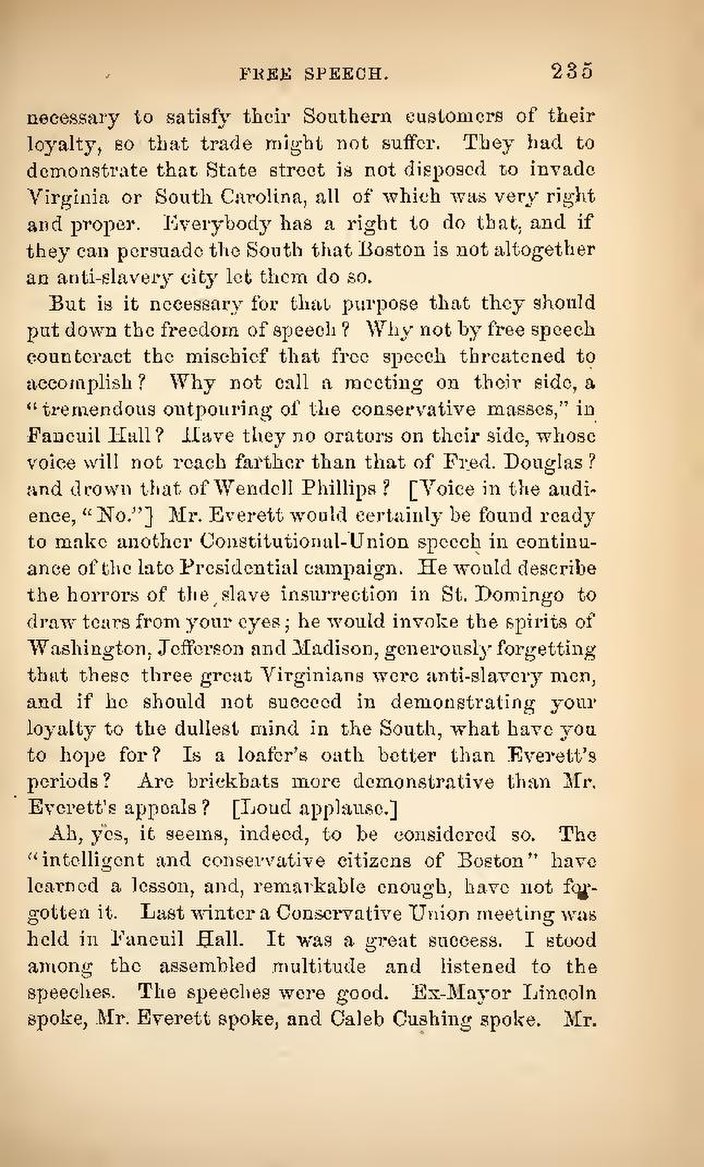necessary to satisfy their Southern customers of their loyalty, so that trade might not suffer. They had to demonstrate that State street is not disposed to invade Virginia or South Carolina, all of which was very right and proper. Everybody has a right to do that, and if they can persuade the South that Boston is not altogether an anti-slavery city let them do so.
But is it necessary for that purpose that they should put down the freedom of speech? Why not by free speech counteract the mischief that free speech threatened to accomplish? Why not call a meeting on their side, a “tremendous outpouring of the conservative masses,” in Faneuil Hall? Have they no orators on their side, whose voice will not reach farther than that of Fred. Douglas? and drown that of Wendell Phillips? [Voice in the audience, “No.”] Mr. Everett would certainly be found ready to make another Constitutional-Union speech in continuance of the late Presidential campaign. He would describe the horrors of the slave insurrection in St. Domingo to draw tears from your eyes; he would invoke the spirits of Washington, Jefferson and Madison, generously forgetting that these three great Virginians were anti-slavery men, and if he should not succeed in demonstrating your loyalty to the dullest mind in the South, what have you to hope for? Is a loafer's oath better than Everett's periods? Are brickbats more demonstrative than Mr. Everett's appeals? [Loud applause.]
Ah, yes, it seems, indeed, to be considered so. The “intelligent and conservative citizens of Boston” have learned a lesson, and, remarkable enough, have not forgotten it. Last winter a Conservative Union meeting was held in Faneuil Hall. It was a great success. I stood among the assembled multitude and listened to the speeches. The speeches were good. Ex-Mayor Lincoln spoke, Mr. Everett spoke, and Caleb Cushing spoke. Mr.
